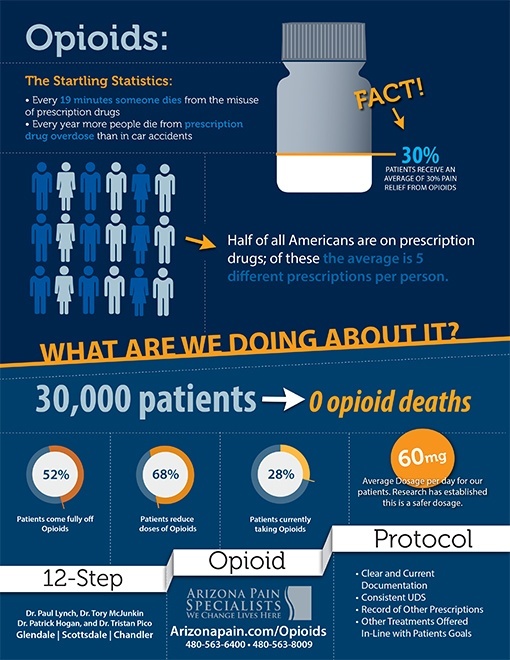Opioid medications include several classes of drugs used in the treatment of narcotic pain. Most opiates are natural substances which, when entering the nerve fibers, have the same effects as those of opium. Medicically, they are mainly used as analgesics, including sedation and anesthesia.
One of the most famous of these, naloxone, is available in pharmacies and emergency rooms around the world. It is injected directly into the central nervous system, causing immediate respiratory arrest. Because it blocks the release of dopamine, a substance that transmits messages between nerves, naloxone can effectively reverse the effects of overdose. It has also been found to be effective in controlling seizures and in nausea and vomiting.
Other narcotic pain relievers such as codeine and morphine are available only with a doctor's prescription. They are often used to relieve pain caused by arthritis and are known to cause some degree of addiction. Physicians are encouraged to prescribe these medications at their discretion for pain relief, especially if the person has a history of drug abuse or addiction.
Opioid medications are very powerful pain relievers that are designed to relieve pain. While they can provide temporary relief, chronic use of options can have serious side effects.
Opiate agonists work in two different ways to relieve pain. The first involves sending a signal to a receptor in the brain. When the receptors receive a signal, the brain releases a neurotransmitter called opiates.
The second mode of action of opioids is by activating a receptor in nerve cells called mu. When mu is activated, the mu-opioid receptor sites trigger the body's normal pain mechanism and release more of the drug needed to relieve pain. Mu-opioid receptor sites can be found in the spinal cord and other parts of the body. This makes mu-opioid agonists unique in that they can be addictive and harmful to the user.
Chronic pain can be caused by several conditions, but cancer is one of the most common causes of pain in people with underlying medical conditions. As the pain moves from one condition to the next, the body's ability to produce and release sufficient opiates decreases. When this happens, the pain becomes chronic and unbearable.

Non-narcotic pain relievers can be administered over the counter for short periods of time and help to reduce the discomfort of pain. Pain relievers can be purchased at drugstores and pharmacies. There are prescription options, as well. They are available by doctors' prescription, although they tend to be less effective.
Some medications prescribed to control chronic pain, such as muscle relaxants and antidepressants, can also cause addiction. The reason that opiods can cause addiction is because they often increase the amount of the drug in the blood stream. The longer someone uses the drug, the more likely it is that the drug will stay in the bloodstream for a long period of time. When the drug is not used, the body produces less of it to compensate for that decrease.
What are opioids? When someone first gets a prescription for an opiate, it may be listed under the title "Substance Abuse". It is a class of drugs that includes heroin and morphine, but does not include barbiturates. which is a synthetic form of opiate). that are commonly prescribed to treat patients suffering from severe pain.
Prescription drugs are available in both pills and injections. Many doctors will recommend a combination of both to relieve pain. Injections are usually given to relieve pain when a person has surgery, but they can also be given as a topical treatment to relieve pain in the hands and feet. Injected drugs are often taken in conjunction with an opiate. The side effects of this treatment can be quite serious, such as vomiting, constipation, and diarrhea.
Most doctors will not prescribe options for all cases of acute or chronic pain. If you suffer from pain that is severe and requires daily treatments, you may have to seek other forms of pain relief. Sometimes, the pain can be so severe that you must have a hysterectomy.
If you are taking a prescription for pain, you should always talk with your doctor about whether or not it is safe to continue to take the medicine long term. If you suffer from serious pain, and the pain doesn't respond to an opiate-based medication, or if you have problems getting a pain killer, you may need to talk to a specialist about an alternative form of treatment.